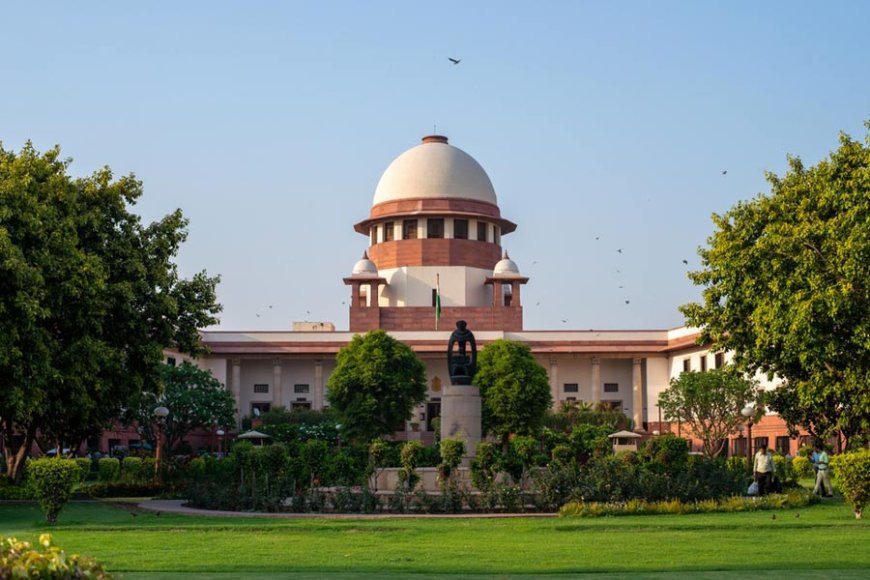Supreme Court Sets Guidelines on Preventive Detention, Protecting Fundamental Rights
Ruling Emphasizes the Importance of Objective Facts and Proper Justification

The fundamental right to life and liberty provided by Article 21 of the Constitution is violated by preventive detention, which involves holding someone in jail without a formal trial. The Supreme Court has declared that this practice cannot be applied in a "capricious manner."
The court further stated that the failure of the police apparatus to maintain law and order should not be a justification for using preventative detention.
A suspected habitual offender may be sent directly to jail by the police commissioner or director-general of police under the preventative detention law without having to appear in court.
The ruling was issued by Chief Justice D.Y. Chandrachud and Justices J.B. Pardiwala and Manoj Misra, who also overturned the Telangana police's order for preventative custody against the appellants Nenavath Bujji and another individual. The pair was imprisoned for allegedly committing multiple robberies and kidnappings, among other offenses.
The panel issued numerous directives for the government while overturning a Telangana High Court ruling that refused to revoke the custody orders.
Author of the decision Justice Pardiwala stated, "Preventive detention being a draconian measure, any order of detention as a result of a capricious or routine exercise of powers must be nipped in the bud."
"It must be overturned at the earliest possible level, and as such, the Advisory Board should be the one to assess all relevant factors—not just the detaining authorities' subjective satisfaction but also whether or not such pleasure justifies the detainee's detention.”
The bench released the subsequent directives:
⦿ To get the necessary subjective satisfaction, the detaining authority shall consider only pertinent and essential material.
⦿ It is an implicit duty, both administratively and constitutionally, that a statutory functionary, entrusted with the subjective satisfaction of a decision-making function, apply his mind to the pertinent and proximate matters and avoid the irrelevant and remote ones.
⦿ The detention order necessitates the subjective approval of the detaining authority, which is typically not open to judicial scrutiny due to insufficient evidence. However, such subjective satisfaction would be tainted if the detaining authority ignored pertinent factors or gave entirely irrelevant, unneeded, and trivial consideration to them.
The court's concern should be determining if the process of making decisions to achieve subjective satisfaction is founded on objective facts or if it is impacted by any whims, malice, or unrelated factors, or whether it lacks mental application.
⦿ The authorities should reach a suitable conclusion when issuing a detention order, and that conclusion should be expressed explicitly and categorically in the order of detention.
⦿ The order's mere assertion that “it was necessary to prevent the detenu from acting in a manner prejudicial to the maintenance of public order” does not imply satisfaction. The detaining authority will instead need to use the evidence that was presented to him to support the detention order, and the deliberation process should be reflected in the detention order while expressing its satisfaction.
⦿ The authority of preventative detention should not be invoked as a justification for the police apparatus's failure to address the state of law and order.
The grounds provided to the detainee should serve as justification for the order, strengthening the detention decree. It cannot be explained by any rationale or grounds that were not provided to the detainee.
⦿ The detaining authority must first review the evidence presented against the prospective detainee in order to determine if his actions or any prior incidents indicate that he has been acting in a way that is detrimental to the upkeep of public order. Second, in the case that the aforementioned satisfaction is reached, it must additionally take into account the likelihood that the aforementioned individual will act in a way that is detrimental to public order in the near future unless an order of detention is passed to stop him from doing so.
Except for the headline, this story has not been edited by Press Time staff and has been published from a syndicated feed.























































